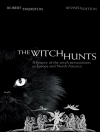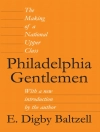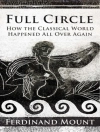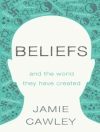As a field, German-Jewish Studies emphasizes the dangers of nationalism, monoculturalism, and ethnocentrism, while making room for multilingual and transnational perspectives with questions surrounding migration, refugees, exile, and precarity. Focussing on the relevance and utility of the field for the twenty-first century, German-Jewish Studies explores why studying and applying German-Jewish history and culture must evolve and be given further attention today. The volume brings together an interdisciplinary range of scholars to reconsider the history of antisemitism—as well as intersections of antisemitism with racism and colonialism—and how connections to German Jews shed light on the continuities, ruptures, anxieties, and possible futures of German-speaking Jews and their legacies.
表中的内容
List of Figures
Foreword
Frank Mecklenburg
Preface
Gerald Westheimer
Acknowledgments
Introduction: German-Jewish Studies for the Twenty-First Century
Kerry Wallach and Aya Elyada
Part I: From the Early Modern Period to the 19th Century: Families, Texts, and Religious Identities
Chapter 1. Le-Dor va-Dor or Discontinuities? Family Networks and the Transnational Turn in (German) Jewish Studies
Mirjam Thulin
Chapter 2. Old Yiddish Texts in German-Jewish Culture: Diachronic Translation and the (Re)turn to the Past
Aya Elyada
Chapter 3. Orthodoxy as a German-Jewish Legacy
Joshua Shanes
Part II: Nation, Belonging, and Communities in the Early 20th Century
Chapter 4. Contested Contextualizations: Relating German-Jewish History to the History of Colonialism
Stefan Vogt
Chapter 5. The Place of Yiddish in German-Jewish Studies
Nick Block
Chapter 6. Metaphysik der Gottferne: Negativity, Intellectual Communities, and German-Jewish Studies
Matthew Handelman
Part III: Migration, Exile, and Diaspora in the 1930s and Beyond
Chapter 7. Art without Borders: Artist Rahel Szalit-Marcus and Jewish Visual Culture
Kerry Wallach
Chapter 8. Woman, Scientist, and Jew: The Forced Migration of Berta Ottenstein
Stefanie Mahrer
This chapter is available open access under a CC BY-NC-ND 4.0 license thanks to the support of the Swiss National Science Foundation.
Chapter 9. A Global Network and Diaspora of German-Jewish Historians and Archives: Reappraising the Enduring Legacy of German Jewry
Jason Lustig
Part IV: After 1945: Memory, Coming to Terms with the Past, Place, and Displacement
Chapter 10. Jewish Mourning in the Aftermath of the Holocaust: Tending Individual Graves in Occupied Germany, 1945–1949
Stefanie Fischer
Chapter 11. German-Jewish Fiction on the Holocaust: The Ethics of Narrative Causality in Edgar Hilsenrath’s Disfigured Narration
Corey L. Twitchell
Chapter 12. (Un-)Jewish Musical Spaces in Munich – Past and Present
Tina Frühauf
Epilogue: The Dynamic Relationship of “German” and “Jewish”
Michael A. Meyer
Index
关于作者
Aya Elyada is Senior Lecturer of German and German-Jewish history at the Hebrew University of Jerusalem. Since 2017 she serves on the Academic Advisory Board of the Leo Baeck Institute Jerusalem and the editorial board of its journal Chidushim – Studies in the History of German and Central European Jewry. Her book, A Goy Who Speaks Yiddish: Christians and the Jewish Language in Early Modern Germany, was published in 2012 by Stanford University Press












